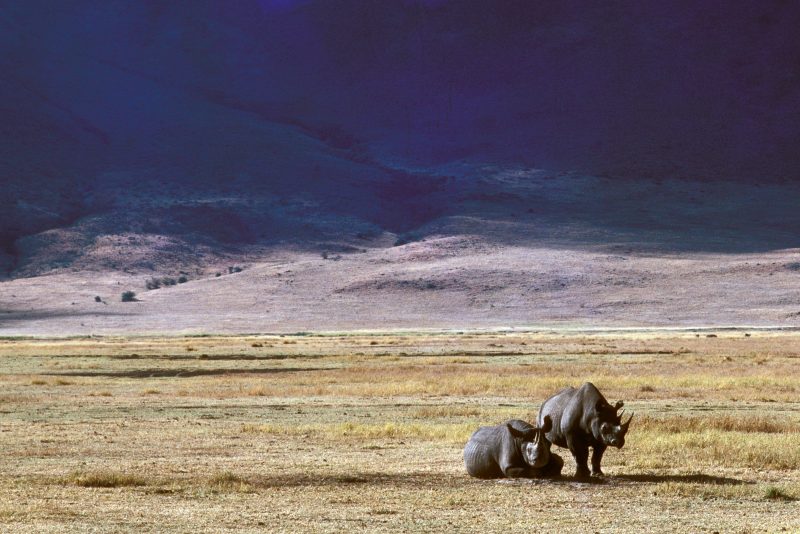Natural capital: what we don't value, we destroy

Economists Alex Teytelboym, Cameron Hepburn, Francois Cohen, and Kirk Hamilton respond to George Monbiot's blistering critique of natural capital thinking
George Monbiot’s recent piece arguing against the concept of natural capital attacks the valuation of nature as “morally wrong, intellectually vacuous, and most of all counter-productive”, and suggests that trying to account for the value of nature will inevitably lead to its commodification, marketisation, and ultimately destruction.
His is a valiant, if misguided, attempt to shut the barn door long after the horse has bolted. The fact of the matter is, our global economic system already places economic values on the natural world – it’s been doing so for centuries, in fact. The problem is that the price placed on many parts of the natural world – ecosystems, biodiversity – is effectively zero.
Our economies value many elements of the natural world at close to zero because we have failed to measure, understand and account for the true value of nature’s riches – clean air and water, soil and pollination for food, the social, intrinsic and spiritual values of natural beauty. Without our deliberate intervention to value nature, markets remain largely blind to these benefits, and thus we consume them to the point of destruction.
“ Imagine if the economy placed the same value on conserving wild rhino populations as they do on conserving copper reserves. Copper is priced; rhinos are not.”
Indeed, a striking contrast can be drawn between natural resources which are already priced and those that are not. Most mineral commodities are already priced by the market - things like metal ores, fossil fuels, mineral resources and so on. Price fluctuations send signals to invest in extraction or to reduce consumption. Investments are made in husbanding and conserving these resources; detailed analysis is undertaken of existing reserves and possible alternatives; great effort is poured into using them efficiently and productively.
Our evidence suggests that, surprisingly, we are not running out of any mineral commodities, despite their finiteness. Nor are we anywhere close to running out of fossil fuels.
In contrast, many renewable natural resources – which can, if not overconsumed, replenish themselves indefinitely, like animal populations, rainforests, rivers, and topsoil – have no price in our economies. Because they are not priced, they are assumed to be free. Because they are free, they are consumed so rapaciously that they are now losing their ability to replenish themselves. The value that the society derives from a healthy wetland is much higher than it costs someone to destroy it.
Imagine if the economy placed the same value on conserving wild rhino populations as they do on conserving copper reserves. Copper is priced; rhinos are not. Copper reserves are in good shape; rhinos are not.

We have argued that all human prosperity rests on nature, and Mr Monbiot is correct to point out that many natural resources are irreplaceable – if we lose our top soil, we can’t grow food on synthetic alternatives; if we kill all the bees, we can’t pollinate flowers ourselves. By talking about natural capital, we emphasise that by destroying natural assets today, we leave future generations less able to enjoy the benefits of a healthy environment.
All of our societies are dependent on nature, and once it’s gone, so are we. Sandel got many things right in What Money Can’t Buy, but philosophical analysis shows that natural resources are not like sex, friendship or votes, which cannot or should not be traded or priced.
There is nothing morally wrong with pricing resources. On the contrary, the evidence is that those who refuse to understand that nature would be better off valued are complicit in doing it grievous harm. Because our democracies have limited means to tackle competing goals like poverty reduction, the provision of healthcare and education, and the protection of the environment, indicators such as natural capital can help set priorities. Refusing to properly value nature in ways that policymakers and markets can understand will only ensure that nature continues to come last in their list of priorities.
“ One of the most important roles that valuing natural capital plays is not to prepare it for sale – it is to understand the value of what is lost when development decisions blindly destroy mangroves, or when rainforest is treated as open access.”
Finally, Mr. Monbiot is incorrect when he states that “price represents an expectation of payment, in accordance with market rates”. A better definition is that price represents the attribution of economic value. One of the most important roles that valuing natural capital plays is not to prepare it for sale – it is to understand the value of what is lost when development decisions blindly destroy mangroves, or when rainforest is treated as open access, where anyone with a chainsaw can extract timber.
Unfortunately, until we place a proper value on natural capital, the global economic system will continue to merrily saw away at the branch we’re all sitting on. Decades of well-intentioned conservation have done little to roll back this tide of unsustainable overexploitation. A new approach is required; properly valuing the huge, irreplaceable natural contributions that we all depend on is a good place to start.
Cameron Hepburn, Professor of Environmental Economics, Smith School, University of Oxford, and Director of Economics of Sustainability, INET, Oxford Martin School
Alex Teytelboym, Associate Professor, Department of Economics, University of Oxford
Francois Cohen, Postdoctoral Researcher, INET Oxford Martin
Kirk Hamilton, Visiting Professor, Department of Geography and Environment, LSE
This article first appeared on BusinessGreen. It is reprinted with permission.
Photos by Matthew Kane and Mark Kucharski on Unsplash.


